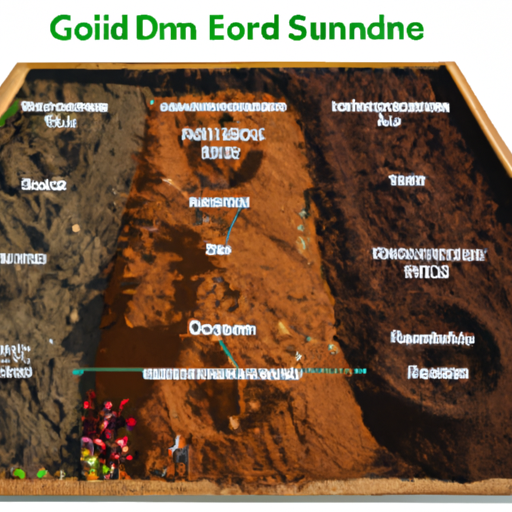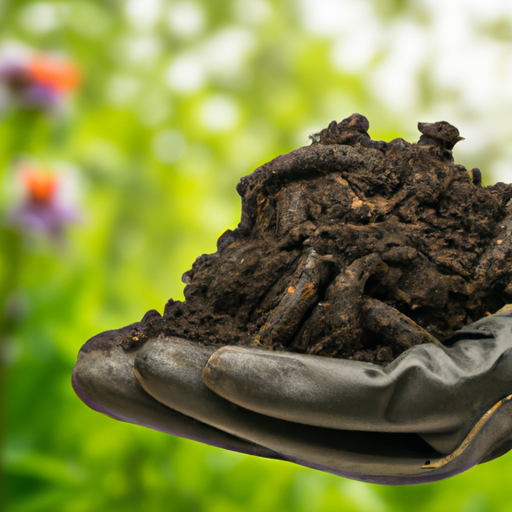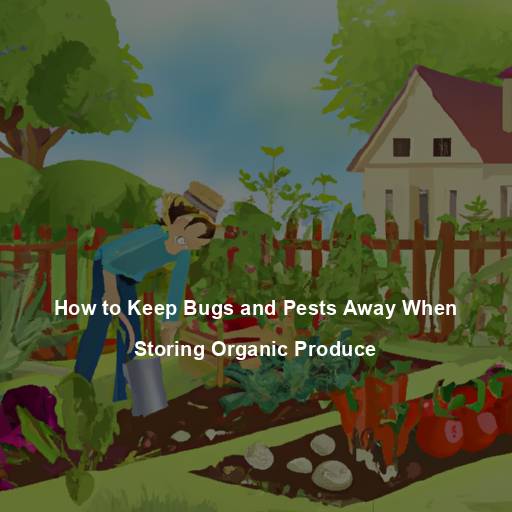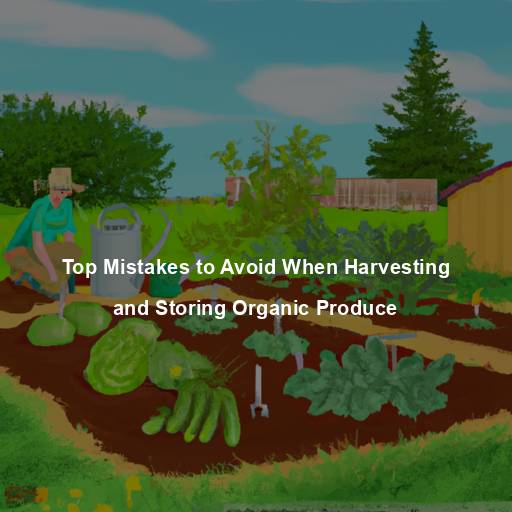Are you struggling with your garden’s soil quality? Do your plants seem to be suffering despite regular watering and fertilization? It could be time to turn to soil amendments.
As a Master Gardener, I have seen firsthand the transformative effect that adding the right soil amendment can have on a garden.
Soil amendments are materials added to soil in order to improve its physical properties, such as water retention and drainage, as well as its nutrient content. They can be organic or inorganic and come in many forms, from compost and manure to vermiculite and perlite.
With so many options available, it can be overwhelming for gardeners to decide which ones will benefit their specific needs. That’s why I’ve put together this comprehensive guide on soil amendments – to help you understand what they are, how they work, and which ones may be best suited for your unique gardening situation.
Understanding Soil Composition
Did you know that soil pH plays a crucial role in determining nutrient availability? Understanding your soil composition is essential to growing healthy plants.
As a Master Gardener, I cannot stress enough the importance of knowing your soil’s pH level and how it affects plant growth. Soil with a pH below 6.0 or above 7.5 can limit nutrient availability, leading to stunted growth and poor yields.
Therefore, testing your soil regularly and making amendments accordingly will ensure optimal conditions for plant growth. Remember, healthy soil equals healthy plants!
Types Of Soil Amendments
As a Master Gardener, I believe that understanding the different types of soil amendments is crucial to achieving healthy and productive plants. There are numerous benefits to using soil amendments, such as improving soil structure, increasing water retention, providing essential nutrients, and promoting beneficial microbial activity. However, it’s important to note that not all amendments are created equal and there may be some disadvantages to certain types.
Common organic soil amendments include compost, manure, leaf mold, peat moss, and straw. Compost is an excellent all-purpose amendment that provides both macro and micronutrients while also improving soil structure. Manure can offer similar benefits but must be aged before use due to its high nitrogen content. Leaf mold is a slow-release amendment that improves moisture retention and adds valuable organic matter to the soil. Peat moss is often used for its ability to retain water in sandy soils but should be used sparingly due to environmental concerns surrounding its harvesting process. Straw can help improve soil structure as well as suppress weed growth.
Inorganic amendments include perlite, vermiculite, sand, clay, and lime. Perlite and vermiculite are commonly used for their ability to increase drainage in heavy soils while also adding some nutrient value. Sand can improve drainage but does little else for soil fertility. Clay can help bind sandy soils together but too much can lead to poor drainage issues. Lime raises the pH level of acidic soils which helps release nutrients from the soil into plant roots.
Overall, each type of amendment has common uses and examples with both advantages and potential drawbacks depending on your specific gardening needs. By choosing the right amendment or combination of amendments for your garden bed or container potting mix you will create optimal growing conditions leading to bountiful harvests without harming either our planet or yourself by chemical actions like fertilizers use among others; happy planting!
Organic Vs. Inorganic Amendments
Now that we have discussed the various types of soil amendments, let’s dive deeper into the difference between organic and inorganic amendments.
Organic amendments are derived from natural sources such as compost, manure, and plant matter. They provide numerous benefits to the soil including improving its structure, increasing water retention capacity, promoting microbial activity, and releasing nutrients slowly over time.
On the other hand, inorganic amendments are synthetic materials like perlite or vermiculite that do not decompose easily. While they can improve aeration and drainage in the soil, they lack the ability to add essential nutrients to it. In addition, some inorganic amendments may even harm beneficial microorganisms present in the soil due to their high salt content.
Therefore, it is important to weigh the benefits of using organic amendments against any potential drawbacks of using inorganic ones when choosing which type of amendment to use for your garden or landscape project.
Choosing The Right Amendment For Your Garden
So, you’ve decided to amend your soil. Congratulations! You’re on the path to a healthier and more productive garden. But before you go out and buy every bag of amendment you can get your hands on, let’s take a step back and consider which one is right for your specific needs.
First things first: what are you looking to achieve with your amendments? Are you hoping to increase water retention or drainage? Boost nutrient levels? Adjust pH levels? Different amendments provide different benefits, so it’s important to have a clear idea of what you’re trying to accomplish.
Once you know what amendment benefits will be most helpful in achieving your gardening goals, it’s time to avoid some common mistakes. Don’t apply too much at once – this can actually harm your plants rather than help them. Follow package instructions carefully and err on the side of caution when applying. Also, don’t assume that all amendments are created equal. Make sure you choose high-quality products from reputable sources.
So without further ado, here are four types of soil amendments commonly used by Master Gardeners:
1. Compost: Great for improving overall soil health and fertility.
2. Peat moss: Ideal for increasing water retention in sandy soils.
3. Perlite or vermiculite: Perfect for improving drainage in heavy clay soils.
4. Lime or sulfur: Helpful in adjusting pH levels as needed.
Application And Maintenance Tips
Now that you have chosen the right amendment for your garden, it’s time to learn about application and maintenance tips.
The frequency of application will depend on the type of amendment you are using and the needs of your soil.
Generally, organic amendments like compost or manure can be added once a year before planting season, while inorganic amendments like lime or sulfur may require multiple applications throughout the growing season.
Common mistakes to avoid include over-application which can lead to nutrient imbalances, not mixing the amendment thoroughly into the soil, and applying too close to plant roots which can cause root burn.
Additionally, after adding amendments, make sure to water frequently as this helps distribute nutrients evenly throughout the soil profile.
Remember that proper application and maintenance is key when using soil amendments so take care to follow instructions closely and monitor your plants’ progress accordingly.
Frequently Asked Questions
Can Soil Amendments Be Harmful To Plants Or The Environment?
Like a double-edged sword, soil amendments can have both positive and negative effects on plants and the environment.
While they can improve soil fertility and enhance plant growth, improper use of amendments or using certain types in excess can cause harm to both the vegetation and the ecosystem.
The negative environmental impact of soil amendments includes water pollution from nutrient runoff and emissions of greenhouse gases that contribute to climate change.
As a Master Gardener, it is important to understand how different soil amendments work and their potential downsides before incorporating them into your gardening practices.
This knowledge will help you make informed decisions that promote healthy plant growth while minimizing any harmful impacts on the environment.
How Often Should Soil Amendments Be Applied To A Garden?
To maintain a healthy garden, it’s important to know how often soil amendments should be applied. The frequency of application depends on several factors such as the type of amendment used and the specific needs of your plants.
Generally, organic amendments like compost can be added annually or biannually while synthetic fertilizers may need more frequent applications throughout the growing season.
Regular use of soil amendments has many benefits including improved soil structure, increased nutrient availability, and better water retention. As a Master Gardener, I recommend conducting regular soil tests to determine which amendments are necessary for optimal plant growth and adjusting your application schedule accordingly.
Can Soil Amendments Be Used In Container Gardening?
As a Master Gardener, I can tell you that container gardening is a great way to grow plants in limited space. However, the key to success lies in choosing the right container size and using optimal amendments for your soil.
When it comes to selecting a container, consider the plant’s root system and choose one with enough depth and width for growth.
Optimal amendments will depend on your specific soil needs but generally include compost, perlite or vermiculite, and organic fertilizers.
Don’t forget to water regularly and keep an eye out for any signs of nutrient deficiencies. With these tips, you’ll be well on your way to thriving container gardens!
Are There Any Diy Soil Amendment Options?
Looking to DIY your soil amendments for container gardening? You’re in luck!
There are a variety of options available, including composting tea and organic mulching.
Composting tea is created by steeping compost in water for several days, resulting in a nutrient-rich liquid that can be added directly to the soil or used as a foliar spray.
Organic mulching involves using natural materials like leaves, straw, and grass clippings to cover the soil surface, providing nutrients as they decompose over time.
Both options are cost-effective and easy to incorporate into any gardening routine.
Can Soil Amendments Improve Plant Growth In Poor Quality Soil?
Improving plant growth in poor quality soil is like providing a warm blanket on a cold winter night – it’s essential for the survival and wellbeing of your plants.
The benefits of composting cannot be overstated when it comes to improving soil health, but there are also many other types of soil amendments that can help increase nutrient levels, improve water retention, and enhance overall plant performance.
As a Master Gardener, I always recommend testing your soil first to determine what specific nutrients or deficiencies need to be addressed before selecting an appropriate amendment.
With careful consideration and proper application, incorporating organic matter into your soil can transform lackluster dirt into fertile ground capable of producing lush gardens and bountiful harvests.
Conclusion
In conclusion, soil amendments are a valuable tool for any gardener looking to improve the health and productivity of their plants. However, it is important to use them responsibly and with caution. While they can greatly benefit your garden, it is possible for soil amendments to harm plants or negatively impact the environment if used incorrectly.
When applying soil amendments, it is best to follow specific instructions related to each product as well as consult with a master gardener or expert in the field.
As the old adage goes, ‘measure twice, cut once’. The same principle applies when amending your soil; taking time to properly prepare and apply amendments will result in a thriving garden filled with strong and healthy plants.
Overall, whether you’re gardening in containers or tending to an outdoor plot, utilizing soil amendments can help you achieve optimal plant growth even in poor quality soils. With proper care and attention given to both your plants and soil composition, you can transform any space into a flourishing oasis bursting with life.
Happy gardening!






